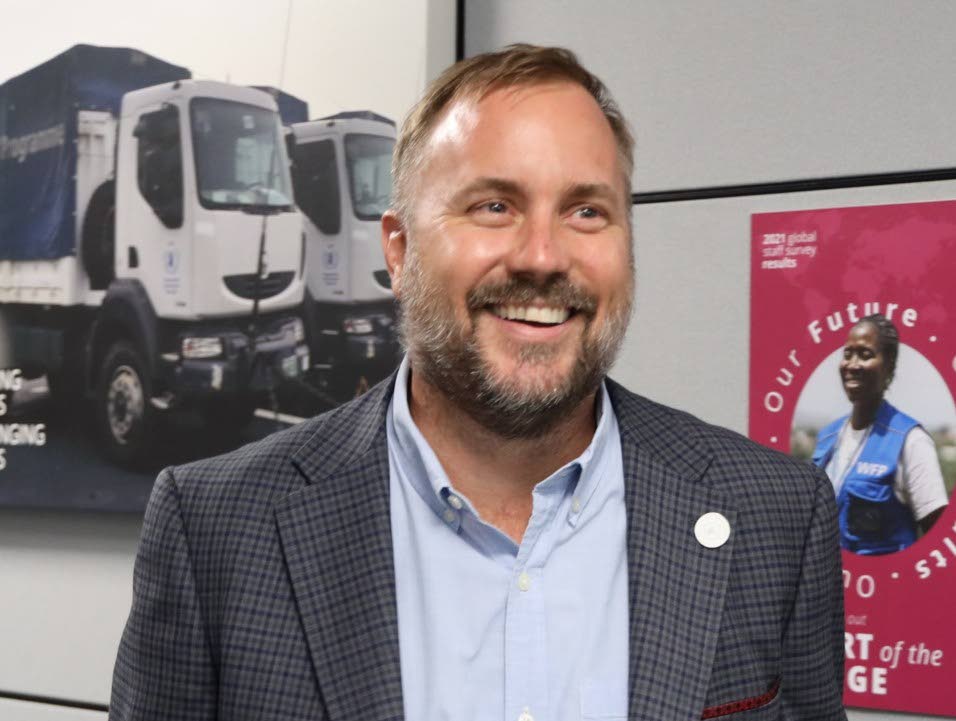Disaster losses can be mitigated through awareness

REGIS CHAPMAN
In 2020, the Office of Disaster Preparedness and Management (ODPM) launched National Disaster Prevention and Preparedness Month (NDPPM), with the objective of developing a national culture of disaster preparedness and prevention. The annual NDPPM, which takes place each May, is a strategic time for TT to focus its attention on disaster awareness in the month leading up to the start of the hurricane season.
At an individual and household level, preparedness begins with awareness. Knowledge is our weapon against the unforeseen, helping to save lives, speed up recovery, and soften the financial and psychological blow when disaster strikes.
This year, 41 national activities are planned, under the theme – Being Disaster Prepared Is My Responsibility. Included in the agenda are evacuation drills, workshops, business continuity training, a community symposium, a public education fair, and climate change education.
Locally, each of the four weeks of NDPPM will be devoted to taking proactive measures in the lead up to hurricane season. The first week will focus on identifying and reducing household risks, the second week will focus on developing and strengthening disaster response plans, the third week will be devoted to gathering emergency supplies, and the final week will consist of information sharing to reduce risks and promote resilience.
On a regional level, the UN World Food Programme (WFP) is working with governments and partner organisations to set up more forward-looking approaches to managing flood, cyclone and drought risks and increase resilience and adaptive capacity for inclusive, gender-responsive climate and disaster risk management. Under an approach known as anticipatory action, scientific forecasts, risk analysis, and forecast-based financing (funding secured in advance) are used to trigger government response in the window between a forecast and a potential shock.
Where awareness-building enhances individual and collective knowledge about hazards, and actions that can be taken to limit exposure and vulnerability, anticipatory action mitigates the burden of disaster response at an individual and household level. When operating synergistically, awareness and anticipatory action have the power to make countries better prepared and “soften the blow” in the event of a disaster.
In the Caribbean, the period between June 1 and November 30 represents the most disaster-related losses historically. Initiatives that enhance both resilience and response are critical in the context of small economies that have limited capacity to withstand shocks for which they are not prepared.
At a national level, the WFP Caribbean Multi-Country Office aims to support governments and stakeholders in the region to be better prepared and have access to reliable pre-agreed funding to mitigate the impact of hazards and respond to disasters.
While this year’s Atlantic hurricane season is predicted to be less active than average, with 11-15 named storms, the Inter-governmental Panel on Climate Change (IPCC) forecasts that extreme weather events will get worse and are more likely to occur in succession in the years to come. It’s also important to remember that it only takes one storm, on one day, to strike one populated area to make it a "bad year."
Caribbean Small Island Developing States (SIDS) are seven times more likely to be impacted by natural disasters than larger countries, and when hit, the average cost of damages relative to gross domestic product (GDP) is six times higher than that of larger countries. One need not look further than Tobago, which sustained millions of dollars in damages due to the impact of Hurricane Ivan in 2004.
The projections of the IPCC should be a wakeup call to us all. The prolonged floods of late last year which resulted in over 51 landslides and multiple reports of damaged structures are a reminder that we must be prepared for “when” and not “if” the next disaster strikes.
The most recent report of recommendations from the IPCC states that in the case of SIDS, resilience and adaptation outcomes can be improved through strong governance, enhanced awareness and human resource capacity, access to climate information, more focus on justice and equity, and increased finance and risk transfer mechanisms.
As climate-related extreme weather events increase in frequency and intensity in the Caribbean, new and improved approaches are being introduced to support those most vulnerable to the impacts of disasters.
WFP Caribbean’s work in vulnerability analysis, data management and digitalisation, strengthening of logistics capabilities and social protection systems, food systems’ resilience and disaster risk finance supports governments to help vulnerable people across the region to meet their food and other essential needs in times of crisis.
Strengthening national social protection systems and data on vulnerable households is key to rapid targeting and implementing actions in support of people impacted by disasters, including through flexible cash support.
The region’s high exposure to hurricanes and tropical depressions, coupled with governments’ experience with social protection and risk financing mechanisms to respond to shocks and disasters, in the context of pre-existing regional and national early warning systems and forecasting, makes the Caribbean ideally suited for anticipatory action.
When coupled with public awareness that converts human knowledge into action, through effective national communication, the region can continue to shift away from reactive and costly post-disaster response to proactive approaches that enhance cooperation and resilience.
Cabinet’s mandate for an improved sense of disaster awareness, preparation, and readiness during this time is an excellent opportunity to ensure that we are prepared for this year’s Atlantic hurricane season.
Disaster preparedness is a collective responsibility.
Regis Chapman is the WFP Caribbean representative.


Comments
"Disaster losses can be mitigated through awareness"